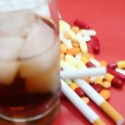Is Compulsive Shopping A Mental Disorder?
There is little doubt that compulsive shopping can cause severe impairment and distress, two key criteria for formal recognition as a mental disorder.
But the rest remains up for grabs: Is compulsive shopping a biologically driven disease of the brain, a learned habit run amok, an addiction in its own right or a symptom of the other dysfunctions — most notably depression — that so often accompany it? Where is the line between avid shopping and compulsive shopping? And how, if this is an illness, is it best treated?
Compulsive buying is not recognized as a disorder by the mental health profession’s guidebook, the Diagnostic and Statistical Manual of Mental Disorders, generally called the DSM. That might change soon, as psychiatrists draft the next version of the DSM, due out sometime after 2010.
In anticipation, researchers and academic practitioners are exploring and debating what the cause of such a condition might be, how widespread it is and how best to diagnose, characterize and treat it. A decision to adopt compulsive shopping as a diagnosis would require most private and public health insurers to cover its treatment, spur new research on the phenomenon and very likely escalate what is now a modest search by pharmaceutical companies for drugs that could curb its symptoms.
Psychiatric Disorders
While experts debate how compulsive buying is related to psychiatric disorders, there is little doubt that they often go hand in hand.
Psychiatrist Timothy Fong, director of the Impulse Control Disorders Clinic at the University of California, Los Angeles, says that probably 40 percent to 50 percent of patients in treatment at the clinic have a major psychiatric disorder accompanying their out-of-control buying behavior. A French study published in 1997 found that of 119 patients hospitalized for depression, almost 32 percent would meet proposed standards for the diagnosis of compulsive shopping. A pair of 1994 studies found that among subjects who met proposed standards for compulsive shopping, roughly two-thirds also could be diagnosed with anxiety, substance abuse or mood disorders, impulse-control disorders such as kleptomania or pyromania, or with disorders marked by obsessive-compulsive behaviors.
“What’s unclear,” especially where depression is present, “is which came first,” says Fong.
Equally unclear is how to treat a condition with such seemingly varied and uncertain origins. Psychotherapy appears to help, and treating other psychological problems with medication and therapy is widely viewed as essential. Preliminary studies have found that antidepressants that increase the availability of the neurochemical serotonin in the brain can ease shopping compulsion. And naltrexone, a drug that blunts the inebriating effects of alcohol, has shown modest effectiveness in curbing the urge to shop.
But Dr. Lorrin Koran, a professor of psychiatry (emeritus) at Stanford University, stressed that, in many cases, these medications have been scarcely more effective than placebos. That suggests that for many compulsive shoppers, awareness of the problem, encouragement from others and personal motivation might be as powerful as drugs.
“Even though we don’t have conclusive proof that one treatment or another works better than another, we do know that people tend to get better if they seek treatment,” says Koran. Much of the cognitive behavioral therapy that has shown promise has focused shoppers on “changing the self-talk” — the things a compulsive shopper tells himself or herself to justify a trip to the store or a purchase — and finding other ways to react to sadness, anger or frustration.
That sadness might spur excess spending was neatly demonstrated in an experiment conducted by researchers at Harvard, Stanford, Carnegie Mellon and the University of Pittsburgh and published in the June issue of Psychological Science.
In short, misery appears to make people less miserly, not more, the authors concluded — especially when the miserable were very focused on their feelings of sadness. Sad consumers, they suggested, are likely to think less of themselves and thus might be more motivated to boost their self-image with a pricey purchase.
_____________
Copyright © 2008, The Los Angeles Times
